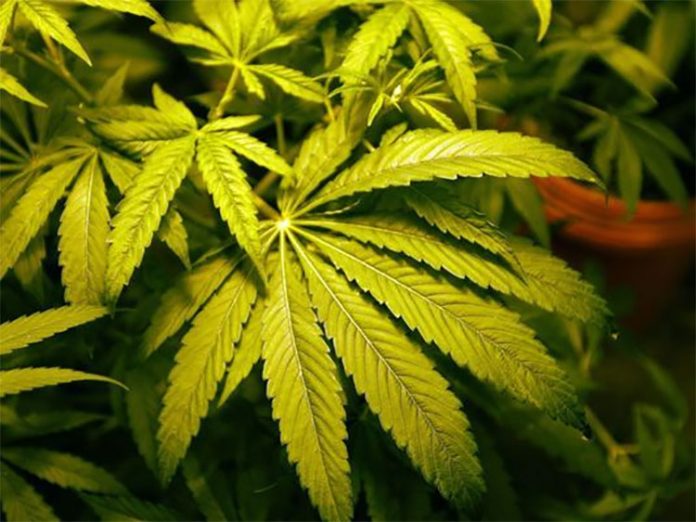South Florida’s budding business of medical marijuana keeps losing potential real estate, city by city, even though voters overwhelmingly indicated they are in favor of allowing it.
As the number of cities banning them has grown in recent weeks, Broward County government is the latest considering whether to outlaw marijuana dispensaries or carve out some restrictions. It would affect the county’s unincorporated areas.
“We don’t want it totally dumped on these unincorporated areas,” County Commissioner Michael Udine said. “It’s such a maze of regulation on both sides of this, it’s very hard to see how these are going to operate.”
Among the cities to recently take action on the dispensaries:
— Pompano Beach, which banned the dispensing of marijuana within city limits Tuesday. Instead, it agreed to allow green bud to be grown only in an industrial district.
— Sunrise, which unanimously agreed Tuesday to keep medical marijuana dispensaries out of the city for at least another 180 days.
— Margate, which banned the dispensaries Dec. 18 on a vote of 4-1.
They join towns and cities, large and small: Boca Raton, Coral Springs, Delray Beach, Highland Beach, Hillsboro Beach, Lauderdale-by-the-Sea, Royal Palm Beach, Sea Ranch Lakes and Southwest Ranches, where it’s been banned, or at least kept out for the time being.
Florida voters overwhelmingly approved medical marijuana for people with certain medical conditions in 2016, but the state rules adopted last year left cities with two options: Ban dispensaries outright, or regulate their locations to the same degree that pharmacies are regulated.
Unlike pharmacies, though, federal rules don’t allow medical marijuana, and that fact makes it a cash-only business, which is often considered a magnet for crime.
Adding to the uncertainty, U.S. Attorney Jeffrey Sessions on Jan. 4 rescinded President Obama-era memos that had adopted a policy of non-interference with marijuana-friendly state laws. Now, instead of a hands-off approach to enforcing federal laws against marijuana, individual U.S. attorneys will decide if they want to prosecute operations that state laws have legalized.
But it’s anyone’s guess whether that’s going to happen.
Dispensaries have been slow to open in South Florida. Lake Worth has one. And Miami has two. Broward County doesn’t have any.
Scott Klenet, spokesman for Knox Medical, which operates the Lake Worth outlet, said that his company delivers to Broward County residents and has Broward County residents visiting its Lake Worth store, however.
He said that he expects a slew of dispensary openings in 2018 and some locations in Broward County could be among them. Unincorporated Palm Beach County also allows them.
“We’re looking around,” he said.
Broward County Commissioner Dale Holness said that even though people voted for it to be allowed, they didn’t necessarily want a dispensary in their neighborhood. Rules to allow the dispensaries will be discussed at the commission’s next meeting on Jan. 23, after gathering information from the surrounding cities.
A dispensary “might be a first-class facility,” Holness said.
But there’s no escaping an unsavory image if any business were to be improperly run, he said. “People are going to be saying, ‘You get marijuana over here to buy,’” Holness added.
When Deerfield Beach City Commission meets Tuesday, the city could go either way on the issue. One proposal calls for marijuana dispensaries to be banned and another plan would allow medical marijuana dispensing in certain sections of the city.
Commissioner Todd Drosky said the dispensaries present an unknown effect, which could inadvertently devalue the city’s economic activity. He said he supports banning them — at least for now.
“With the unknown this is going to bring to municipalities, it’s more prudent to wait and see what happens, rather than dive into this headfirst,” he said.
Deerfield Beach Mayor Bill Ganz said he’s certain his city will be able to regulate them enough. To keep out the small-time operators that could make the businesses appear unprofessional, he said regulations that could be added would play a big role.
For example, he cited regulations adopted by Wellington on Jan. 8, which require dispensaries and pharmacies to be at least 10,000 square feet in size — the same as a typical, big-box pharmacy like CVS.
“I think there’s a lot of misinformation out there,” Ganz said. “If people do their research, anyone who is expecting [dispensaries to be] Bob Marley posters and blue lights has an uneducated view of what these dispensaries are going to be.”
Coconut Creek took its first steps toward outlining its provisions for the dispensaries on Thursday night, joining Deerfield, Hollywood and Wilton Manors. Coconut Creek Vice Mayor Josh Rydell said state law allows for deliveries within all Florida city limits, so there’s no keeping it out, he said.
“It’s more forward-thinking to be in a capacity where you can outline [a dispensary’s] type of facility, the security, the location and other requirements,” he said.














